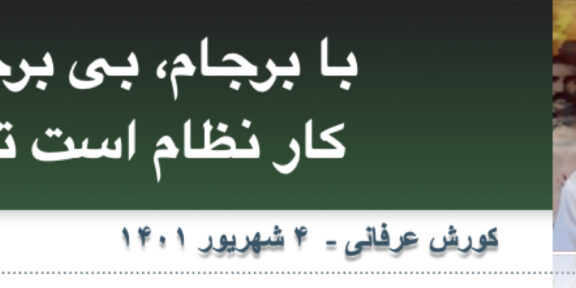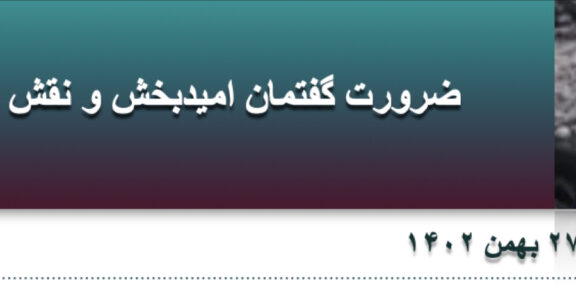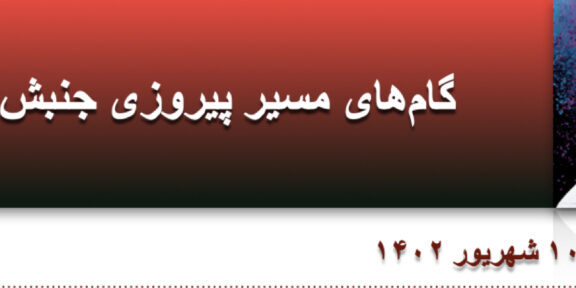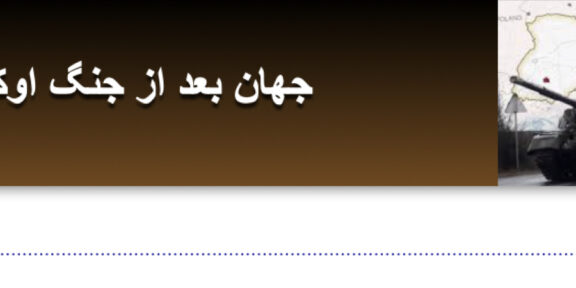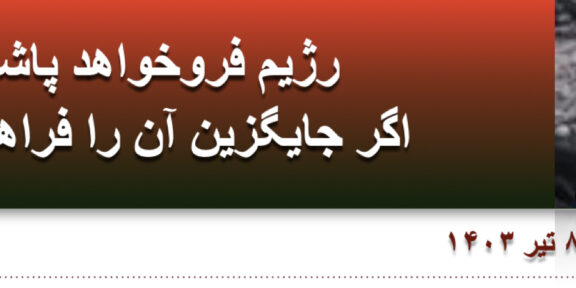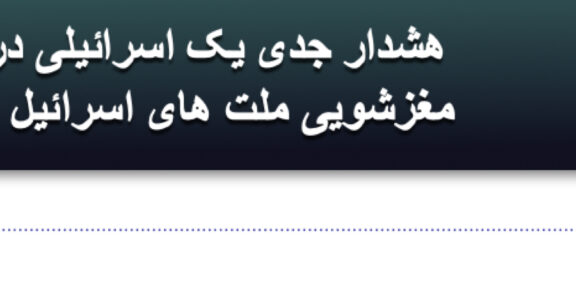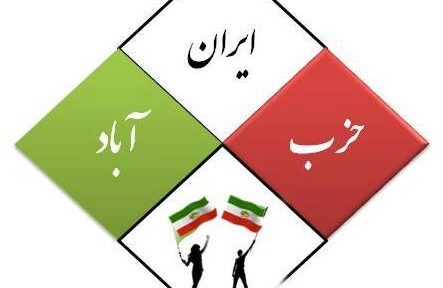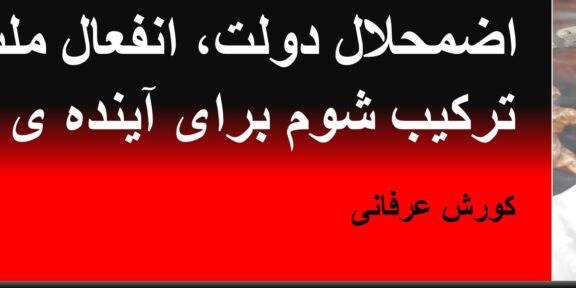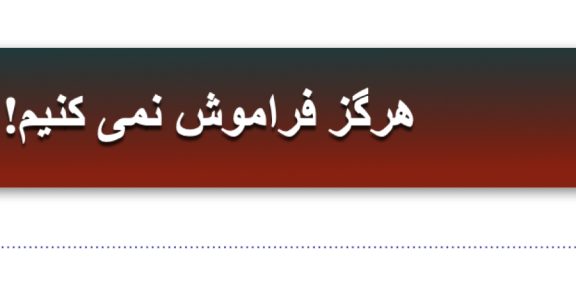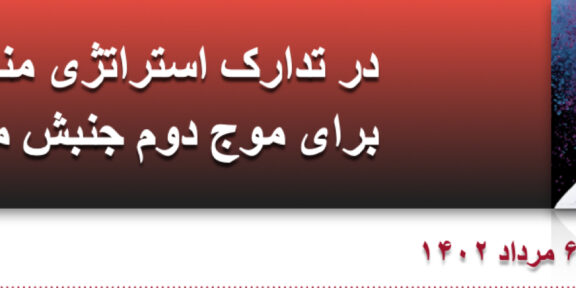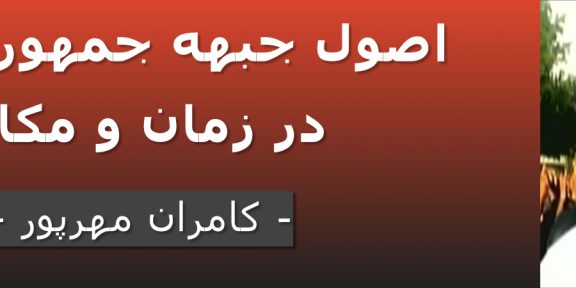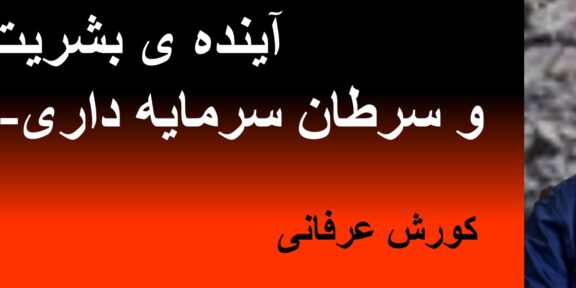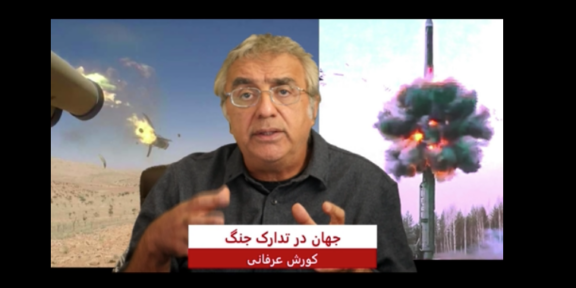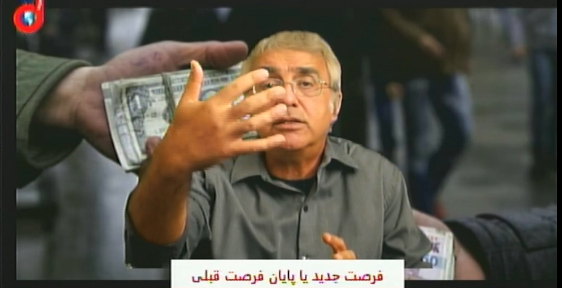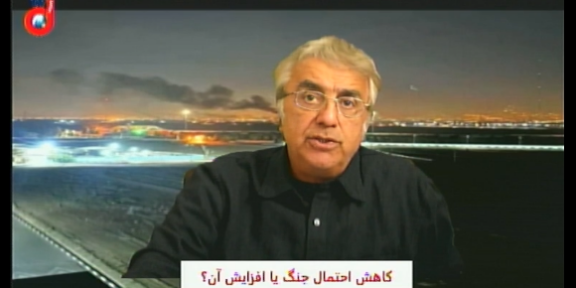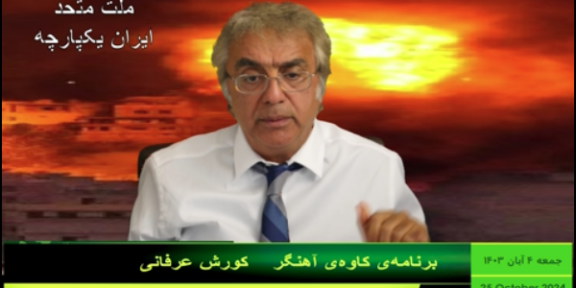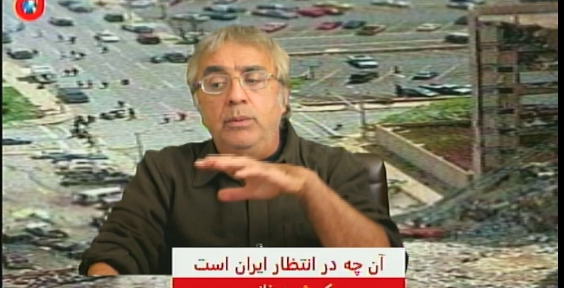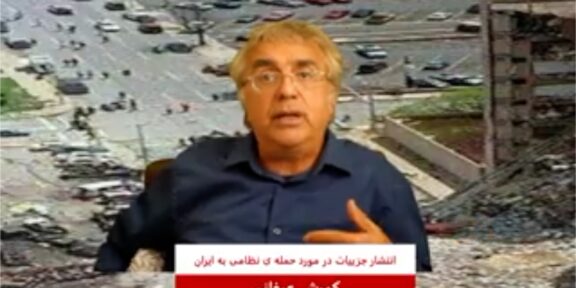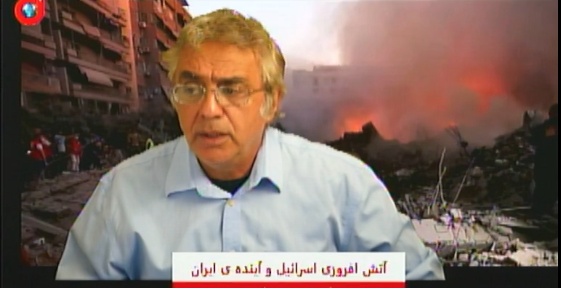ما از حامیان خود میخواهیم که به ما در مقاومت علیه کمپین دانشگاهکشی اسرائیل و بازسازی دانشگاهها یاری دهند.
از طرف: دانشگاهیان و کارکنان مدیریت دانشگاه های غزه
منتشر شده در 29 مه 2024
ما به عنوان دانشگاهیان فلسطینی و کارکنان دانشگاههای غزه گرد هم آمدهایم تا وجود خود، وجود همکاران و دانشجویانمان را مورد تاکید قرار داده و بر آینده خویش در مواجهه با تمام تلاشهای کنونی برای محو ما اصرار ورزیم.
نیروهای اشغالگر اسرائیل ساختمانهای ما را تخریب کردهاند، اما دانشگاههای ما زنده هستند. ما بر عزم جمعی خود برای ماندن در سرزمین خویش و از سرگیری تدریس، تحصیل و تحقیق در غزه و در دانشگاههای فلسطینی خودمان، در اولین فرصت، تاکید میکنیم.
ما از دوستان و همکارانمان در سراسر جهان میخواهیم که در برابر کمپین مداوم دانشگاهکشی در فلسطین اشغالی مقاومت کنند، در کنار ما برای بازسازی دانشگاههای تخریب شده کار کنند و هر برنامهای را که به دنبال دور زدن، پاک کردن یا تضعیف یکپارچگی موسسات دانشگاهی ما است، طرد کنند. آیندهی جوانان ما در غزه به ما و توانایی ما برای ماندن در سرزمینمان برای ادامه خدمت به نسلهای آیندهی مردممان بستگی دارد.
ما این فراخوان را از زیر بمبهای نیروهای اشغالگر در سراسر غزهی اشغالی، در اردوگاههای پناهندگان رفح و از مکانهای تبعید موقت جدید در مصر و دیگر کشورهای میزبان صادر میکنیم. ما آن را در حالی منتشر میکنیم که اشغالگران اسرائیلی روزانه به کارزار نسلکشی خود علیه مردم ما ادامه میدهند تا هر جنبه ای از زندگی جمعی و فردی ما را از بین ببرند.
خانوادهها، همکاران و دانشآموزان ما ترور میشوند، در حالی که ما بار دیگر بیخانمان شدهایم و باز هم تجربیات والدین و پدربزرگ و مادربزرگان خود را در طول قتل عام و اخراجهای جمعی توسط نیروهای مسلح صهیونیست در سال های 1947 و 1948 زندگی میکنیم.
زیرساختهای مدنی ما – دانشگاهها، مدارس، بیمارستانها، کتابخانهها، موزهها و مراکز فرهنگی – ساخته شده توسط نسلهای متمادی مردم ما، در خرابههای این نکبت عمدی مداوم قرار دارد. هدف قرار دادن عمدی زیرساختهای آموزشی ما تلاشی آشکار برای غیر قابل سکونت کردن غزه و از بین بردن ساختار فکری و فرهنگی جامعه ما است. با این حال، ما اجازه نمیدهیم چنین اقداماتی شعلهی دانش و پایداری را که در درون ما میسوزد، خاموش کند.
متحدان اسرائیل اشغالگر در ایالات متحده و بریتانیا در حال باز کردن یک جبهه دانشگاهکُشی دیگر از طریق ترویج طرحهای بازسازی ادعایی هستند که به دنبال از بین بردن امکان حیات آموزشی مستقل فلسطینی در غزه است. ما همه این طرحها را رد میکنیم و از همکارانمان میخواهیم که هرگونه همدستی در آنها را رد کنند. ما همچنین از همه دانشگاهها و همکاران در سراسر جهان میخواهیم که هر گونه تلاشهای کمکهای علمی را به طور مستقیم با دانشگاههای ما هماهنگ کنند.
ما از صمیم قلب از نهادهای ملی و بینالمللی که در همبستگی با ما ایستادهاند و در این زمان چالشبرانگیز حمایت و کمک میکنند، قدردانی میکنیم. با این حال، ما بر اهمیت هماهنگی این تلاشها برای بازگشایی موثر دانشگاههای فلسطینی در غزه تاکید داریم.
ما بر نیاز فوری به فعالیت مجدد موسسات آموزشی غزه تاکید میکنیم، نه تنها برای حمایت از دانشجویان فعلی، بلکه برای اطمینان از انعطافپذیری و پایداری طولانی مدت نظام آموزش عالی خود. آموزش فقط وسیلهای برای انتقال دانش نیست، این یک ستون حیاتی از وجود ما و چراغ امید برای مردم فلسطین است.
بر این اساس، تدوین یک استراتژی بلند مدت برای بازسازی زیرساختها و ترمیم کل امکانات دانشگاهها ضروری است. با این حال، چنین تلاشهایی نیاز به زمان و بودجه قابل توجهی دارد که خطری است برای توانایی موسسات دانشگاهی در حفظ فعالیتشان و میتواند به طور بالقوه منجر به از دست دادن کارکنان، دانشجویان و ظرفیت فعالیت مجدد آنها شود.
انتقال آموزش متعارف به آموزش مجازی برای کاهش اختلال ناشی از تخریب زیرساختهای فیزیکی ضروری مینماید. این انتقال نیاز به حمایت جامع برای پوشش هزینههای عملیاتی، از جمله حقوق کارکنان دانشگاهی دارد.
هزینههای دانشجویی، منبع اصلی درآمد دانشگاهها، از زمان آغاز نسلکشی سقوط کرده است. کمبود درآمد، کارکنان را بدون حقوق رها کرده است و بسیاری از آنها را به جستجوی فرصتهای بیرون از غزه سوق داده است.
فراتر از ضربهی وارد شده به معیشت استادان و کارکنان دانشگاه، این فشار مالی ناشی از کمپین عمدی دانشگاهکُشی است که یک تهدید وجودی برای آیندهی خود دانشگاهها میباشد.
بنابراین، اقدامات فوری باید برای رسیدگی به بحران مالی که اکنون موسسات دانشگاهی با آن روبرو هستند، در جهت اطمینان از بقای آنها، صورت گیرد. ما از همه طرفهای ذینفع میخواهیم که فورا تلاشهای خود را در حمایت از این هدف حیاتی هماهنگ کنند.
بازسازی موسسات دانشگاهی غزه فقط موضوع آموزش نیست، این گواهی بر انعطافپذیری و عزم و تعهد تزلزلناپذیر ما برای تامین آینده برای نسلهای آتی است.
سرنوشت آموزش عالی در غزه متعلق به دانشگاههای غزه، استادان، کارکنان و دانشجویان آنها و به طور کلی به مردم فلسطین است. ما از تلاشهای مردم و شهروندان در سراسر جهان برای پایان دادن به این نسلکشی مداوم قدردانی میکنیم.
ما از همکارانمان در میهن و در سطح بینالمللی میخواهیم از تلاشهای پایدار ما برای دفاع و حفظ دانشگاههایمان به خاطر آینده مردم و توانمندی ما برای ماندن در سرزمین فلسطین در غزه حمایت کنند. ما این دانشگاهها را از چادرها ساختیم و از چادرها، با حمایت دوستانمان، بار دیگر آنها را بازسازی خواهیم کرد.#
* اسامی دانشگاهیانی که این نامه را امضاء کرده اند در پایین متن به زبان انگلیسی آمده است.
Lettre ouverte d’universitaires et d’administrateurs d’universités de Gaza au monde
Nous appelons nos partisans à nous aider à résister à la campagne israélienne de scolasticisme et à reconstruire nos universités
Universitaires et administrateurs de Gaza
Publié le 29 mai 202429 mai 2024
Nous nous sommes réunis en tant qu’universitaires palestiniens et membres du personnel des universités de Gaza pour affirmer notre existence, l’existence de nos collègues et de nos étudiants et l’insistance sur notre avenir, face à toutes les tentatives actuelles de nous effacer
Les forces d’occupation israéliennes ont démoli nos bâtiments, mais nos universités survivent. Nous réaffirmons notre détermination collective à rester sur notre terre e à reprendre l’enseignement, l’étude et la recherche à Gaza, dans nos propres universités palestiniennes, dès que possible
Nous appelons nos amis et collègues du monde entier à résister la campagne de scolasticisme en cours en Palestine occupée, à travailler à nos côtés pour reconstruire nos universités démolies et à refuser tous les plans visant à contourner, effacer ou affaiblir l’intégrité de nos institutions universitaires. L’avenir de nos jeunes à Gaza dépend de nous et de notre capacité à rester sur notre terre afin de continuer à servir les générations futures de notre peuple
Nous lançons cet appel sous les bombes des forces d’occupation à travers Gaza occupé, dans les camps de réfugiés de Rafah et depuis les sites de nouvel exil temporaire en Égypte et dans d’autres pays d’accueil. Nous le diffusons alors que l’occupation israélienne continu de mener quotidiennement sa campagne génocidaire contre notre peuple, dans sa tentative d’éliminer tous les aspects de notre vie collective et individuelle
Nos familles, nos collègues et nos étudiants sont assassinés, tandis que nous nous retrouvons une fois de plus sans abri, revivant les expériences de nos parents et grands-parents lors des massacres et des expulsions massives par les forces armées sionistes en 1947 et 1948
Nos infrastructures civiques – universités, écoles, hôpitaux, bibliothèques, musées et centres culturels – construites par des générations de notre peuple, sont en ruines de cette Nakba délibérée et continue. Le ciblage délibéré de notre infrastructure éducative est une tentative flagrante de rendre Gaza inhabitable et d’éroder le tissu intellectuel et culturel de notre société. Cependant, nous refusons de permettre à de tels actes d’éteindre la flamme de la connaissance et de la résilience qui brûle en nous
Les alliés de l’occupation israélienne aux États-Unis et au Royaume-Uni ouvrent un nouveau front scolastique en promouvant de prétendus plans de reconstruction qui visent à éliminer la possibilité d’une vie éducative palestinienne indépendante à Gaza. Nous rejetons tous ces projets et exhortons nos collègues à refuser toute complicité. Nous exhortons également toutes les universités et tous les collègues du monde entier à coordonner tout effort d’aide académique directement avec nos universités
Nous exprimons notre sincère gratitude aux institutions nationales et internationales qui nous ont été solidaires en nous apportant soutien et assistance en ces temps difficiles. Cependant, nous soulignons l’importance de coordonner ces efforts pour rouvrir efficacement les universités palestiniennes à Gaza
Nous soulignons le besoin urgent de réorganiser les établissements d’enseignement de Gaza, non seulement pour soutenir les étudiants actuels, mais aussi pour assurer la résilience et la durabilité à long terme de notre système d’enseignement supérieur. L’éducation n’est pas seulement un moyen de transmettre des connaissances ; c’est un pilier vital de notre existence et une lueur d’espoir pour le peuple palestinien
Il est donc essentiel de formuler une stratégie à long terme pour réhabiliter l’infrastructure et reconstruire l’ensemble des installations des universités. Cependant, de telles entreprises nécessitent beaucoup de temps et un financement substantiel, ce qui pose un risque pour la capacité des établissements d’enseignement à maintenir leurs activités, ce qui peut entraîner la perte de personnel, d’étudiants et de la capacité de refonctionner
Compte tenu des circonstances actuelles, il est impératif de passer rapidement à l’enseignement en ligne afin d’atténuer les perturbations causées par la destruction des infrastructures physiques. Cette transition nécessite un soutien complet pour couvrir les coûts opérationnels, y compris les salaires du personnel académique
Les frais de scolarité, principale source de revenus des universités, se sont effondrés depuis le début du génocide. Le manque de revenus a laissé le personnel sans salaire, poussant beaucoup d’entre eux à chercher des opportunités externes
Au-delà de la grève des moyens de subsistance du corps professoral et du personnel universitaire, cette pression financière causée par la campagne délibérée de scolasticide constitue une menace existentielle pour l’avenir des universités elles-mêmes
Des mesures urgentes doivent donc être prises pour faire face à la crise financière à laquelle sont confrontées les institutions universitaires, afin d’assurer leur survie même. Nous appelons toutes les parties concernées à coordonner immédiatement leurs efforts à l’appui de cet objectif essentiel
La reconstruction des institutions universitaires de Gaza n’est pas seulement une question d’éducation ; C’est un témoignage de notre résilience, de notre détermination et de notre engagement inébranlable à assurer un avenir aux générations à venir
Le sort de l’enseignement supérieur à Gaza appartient aux universités de Gaza, à leurs professeurs, à leur personnel et à leurs étudiants, ainsi qu’au peuple palestinien dans son ensemble. Nous apprécions les efforts des peuples et des citoyens du monde entier pour mettre fin à ce génocide en cours
Nous appelons nos collègues dans la patrie et à l’étranger à soutenir nos efforts inébranlables pour défendre et préserver nos universités pour le bien de l’avenir de notre peuple, et notre capacité à rester sur notre terre palestinienne à Gaza. Nous avons construit ces universités à partir de tentes. Et à partir de tentes, avec le soutien de nos amis, nous les reconstruirons une fois de plus
Les noms des universitaires qui ont signé cette lettre sont écrits en anglais au bas du texte
Open letter by Gaza academics and university administrators to the world
We call on our supporters to help us resist the Israeli campaign of scholasticide and rebuild our universities
Gaza Academics and Administrators
Published On 29 May 202429 May 2024
We have come together as Palestinian academics and staff of Gaza universities to affirm our existence, the existence of our colleagues and our students, and the insistence on our future, in the face of all current attempts to erase us
The Israeli occupation forces have demolished our buildings but our universities live on. We reaffirm our collective determination to remain on our land and to resume teaching, study, and research in Gaza, at our own Palestinian universities, at the earliest opportunity
We call upon our friends and colleagues around the world to resist the ongoing campaign of scholasticide in occupied Palestine, to work alongside us in rebuilding our demolished universities, and to refuse all plans seeking to bypass, erase, or weaken the integrity of our academic institutions. The future of our young people in Gaza depends upon us, and our ability to remain on our land in order to continue to serve the coming generations of our people
We issue this call from beneath the bombs of the occupation forces across occupied Gaza, in the refugee camps of Rafah, and from the sites of temporary new exile in Egypt and other host countries. We are disseminating it as the Israeli occupation continues to wage its genocidal campaign against our people daily, in its attempt to eliminate every aspect of our collective and individual life
Our families, colleagues, and students are being assassinated, while we have once again been rendered homeless, reliving the experiences of our parents and grandparents during the massacres and mass expulsions by Zionist armed forces in 1947 and 1948
Our civic infrastructure – universities, schools, hospitals, libraries, museums and cultural centres – built by generations of our people, lies in ruins from this deliberate continuous Nakba. The deliberate targeting of our educational infrastructure is a blatant attempt to render Gaza uninhabitable and erode the intellectual and cultural fabric of our society. However, we refuse to allow such acts to extinguish the flame of knowledge and resilience that burns within us
Allies of the Israeli occupation in the United States and United Kingdom are opening yet another scholasticide front through promoting alleged reconstruction schemes that seek to eliminate the possibility of independent Palestinian educational life in Gaza. We reject all such schemes and urge our colleagues to refuse any complicity in them. We also urge all universities and colleagues worldwide to coordinate any academic aid efforts directly with our universities
We extend our heartfelt appreciation to the national and international institutions that have stood in solidarity with us, providing support and assistance during these challenging times. However, we stress the importance of coordinating these efforts to effectively reopen Palestinian universities in Gaza
We emphasise the urgent need to reoperate Gaza’s education institutions, not merely to support current students, but to ensure the long-term resilience and sustainability of our higher education system. Education is not just a means of imparting knowledge; it is a vital pillar of our existence and a beacon of hope for the Palestinian people
Accordingly, it is essential to formulate a long-term strategy for rehabilitating the infrastructure and rebuilding the entire facilities of the universities. However, such endeavours require considerable time and substantial funding, posing a risk to the ability of academic institutions to sustain operations, potentially leading to the loss of staff, students, and the capacity to reoperate
Given the current circumstances, it is imperative to swiftly transition to online teaching to mitigate the disruption caused by the destruction of physical infrastructure. This transition necessitates comprehensive support to cover operational costs, including the salaries of academic staff
Student fees, the main source of income for universities, have collapsed since the start of the genocide. The lack of income has left staff without salaries, pushing many of them to search for external opportunities
Beyond striking at the livelihoods of university faculty and staff, this financial strain caused by the deliberate campaign of scholasticide poses an existential threat to the future of the universities themselves
Thus, urgent measures must be taken to address the financial crisis now faced by academic institutions, to ensure their very survival. We call upon all concerned parties to immediately coordinate their efforts in support of this critical objective
The rebuilding of Gaza’s academic institutions is not just a matter of education; it is a testament to our resilience, determination, and unwavering commitment to securing a future for generations to come
The fate of higher education in Gaza belongs to the universities in Gaza, their faculty, staff, and students and to the Palestinian people as a whole. We appreciate the efforts of peoples and citizens around the world to bring an end to this ongoing genocide
We call upon our colleagues in the homeland and internationally to support our steadfast attempts to defend and preserve our universities for the sake of the future of our people, and our ability to remain on our Palestinian land in Gaza. We built these universities from tents. And from tents, with the support of our friends, we will rebuild them once again
Signatories
Dr Kamalain Shaath, Vice Chairman of the Board of Trustees, Islamic University of Gaza (IUG)
Prof Omar Milad, President of Al Azhar University Gaza, Al Azhar University Gaza
Dr Mohamed Reyad Zughbur, Dean of the Faculty of Medicine, Al Azhar University Gaza
Dr Nasser Abu Alatta, Dean of Students Affairs, Al Aqsa University
Dr Akram Mohammed Radwan, Dean of Admission, Registration, and Student Affairs, University College of Applied Sciences – Gaza
Dr Atta Abu Hany, Dean of Faculty of Science, Al Azhar University Gaza
Prof Hamdi Shhadeh Zourb, Dean of the Faculty of Economics and Administrative Sciences, Islamic University of Gaza (IUG)
Dr Ahmed Abu Shaban, Dean of the Faculty of Agriculture and Veterinary Medicine, Al Azhar University Gaza
Dr Ahmed A Najim, Dean of Admission and Registration, Al Azhar University Gaza
Dr Noha A Nijim, Dean of Economics and Administrative Science Faculty, Al Azhar University Gaza
Prof Hatem Ali Al-Aidi, Dean of Planning and Quality, Islamic University of Gaza (IUG)
Dr Ihab A Naser Dean of Faculty of Applied Medical Sciences, Al Azhar University Gaza
Eng Amani Al-Mqadama, Head of the International Relations, Islamic University of Gaza (IUG)
Dr Mohammed R AlBaba, Dean of Faculty of Dentistry, Al Azhar University Gaza
Dr Rami Wishah , Dean of the Faculty of Law, Al Azhar University Gaza
Prof Basim Mohammad Ayesh, Head of MSc Programme Committee and Professor of Molecular Genetics, Al Aqsa University
Prof Hassan Asour, Dean of Scientific Research, Al Azhar University Gaza
Khaled Ismail Shahada Tabish, Head of Salaries Department, Islamic University of Gaza (IUG)
Prof Mazen Sabbah, Dean of Faculty of Sharia, Al Azhar University Gaza
Dr Ashraf J Shaqalaih, Head of Laboratory Medicine Dept, Al Azhar University Gaza
Dr Mahmoud El Ajouz, Head of Food Analysis Center and Lecturer at the Faculty of Agriculture, Al Azhar University Gaza
Dr Mazen AbuQamar, Head of Nursing Department, Al Azhar University Gaza
Eng Abed Elnaser Mustafa Abu Assi, Head of Engineering Office, Al Azhar University Gaza
Dr Ahmed Rezk Al-Wawi, Vice President of the Islamic University Workers’ Union, Islamic University of Gaza (IUG)
Shareef El Buhaisi, Head of Administration Office at the Faculty of Applied Medical Sciences, Al Azhar University Gaza
Dr Saeb Hussein Al-Owaini, Director of Employees, Islamic University of Gaza (IUG)
Dr Mai Ramadan, Director of the Drug and Toxicology Analysis Centre, Al Azhar University Gaza
Dr Mohammed S M Kuhail, Director of Libraries, Al Azhar University Gaza
Eng Emad Ahmed Ismail Al-Nounou, Director, Technical Department, Al Azhar University Gaza
Eng Ismail Abdul Rahman Abu Sukhaila, Director Engineering Office, Islamic University of Gaza (IUG)
Osama R Shawwa, Director of Administrative Office in the Department of Political Sciences, Al Azhar University Gaza
Adnan A S El-Ajrami, Director of Administrative Office at the Faculty of Medicine, Al Azhar University Gaza
Hashem Mahmoud Kassab, Director of Public Relations and Media Department, Al Azhar University Gaza
Mazen Hilles, Director of Administration of Diploma Programme, Al Azhar University Gaza
Adel Mansour Suleiman Al-Louh , Services Manager, Islamic University of Gaza (IUG)
Hammam Al-Nabahen, Director of IT Services, Islamic University of Gaza (IUG)
Maher Haron Ereif, Audit Department Assistant Director, Al Azhar University Gaza
Khalid Solayman Alsayed, Information Technology Administrator, Al Azhar University Gaza
Dr Amani H Abujarad, Assistant Professor of Applied Linguistics Department of English, Al Azhar University Gaza
Dr Ayman Shaheen, Assistant Professor in Political Sciences, Al Azhar University Gaza
Prof Alaa Mustafa Al-Halees, Faculty of Information Technology, Islamic University of Gaza (IUG)
Prof Basil Hamed, Faculty of Engineering, Islamic University of Gaza (IUG)
Dr Mohamed Elhindy, Assistant Professor in Veterinary Medicine, Al Azhar University Gaza
Prof Bassam Ahmed Abu Zaher, Faculty of Science, Islamic University of Gaza (IUG)
Prof Fakhr Abo Awad, Faculty of Science – Department of Chemistry, Islamic University of Gaza (IUG)
Prof Saher Al Waleed, Professor of Law, Al Azhar University Gaza
Prof Kamal Ahmed Ghneim, Faculty of Arts, Islamic University of Gaza (IUG)
Prof Khadir Tawfiq Khadir, Department of English Language – Faculty of Arts, Islamic University of Gaza (IUG)
Dr Marwan Saleem El-Agha, Assistant Professor of Business Administration, Al Azhar University Gaza
Dr Mona Jehad Wadi, Assistant Professor of microbiology, Al Azhar University Gaza
Dr Mohammed Faek Aziz, Deanship of Quality and Development, Islamic University of Gaza (IUG)
Dr Muhammed Abu Mattar, Associate Professor in Law, Al Azhar University Gaza
Prof Abdul Fattah Nazmi Hassan Abdel Rabbo, Faculty of Science, Islamic University of Gaza (IUG)
Dr Saher Al Waleed, Professor of Law, Al Azhar University Gaza
Dr Sari El Sahhar, Assistant Professor in Plant Protection, Al Azhar University Gaza
Dr Nidal Jamal Masoud Jarada, Law, University College of Applied Sciences – Gaza
Dr Sherin H Aldani, Assistant Professor in Social Sciences, Al Azhar University Gaza
Dr Wael Mousa, Assistant Professor in Food Technology, Al Azhar University Gaza
Prof Mohamed I H Migdad, Faculty of Economics and Administrative Sciences, Islamic University of Gaza (IUG)
Prof Alaa Mustafa Al-Halees, Faculty of Information Technology, Islamic University of Gaza (IUG)
Prof Usama Hashem Hamed Hegazy, Professor of Applied Mathematics, Al Azhar University Gaza
Prof Basil Hamed, Faculty of Engineering, Islamic University of Gaza (IUG)
Prof Tawfik Musa Allouh, Professor of Arabic Literature, Al Azhar University Gaza
Prof Bassam Ahmed Abu Zaher, Faculty of Science, Islamic University of Gaza (IUG)
Prof Zaki S Safi, Professor of Chemistry, Al Azhar University Gaza
Prof Fakhr Abo Awad, Faculty of Science – Department of Chemistry, Islamic University of Gaza (IUG)
Prof Kamal Ahmed Ghneim, Faculty of Arts, Islamic University of Gaza (IUG)
Prof Khadir Tawfiq Khadir, Department of English Language – Faculty of Arts, Islamic University of Gaza (IUG)
Prof Khaled Hussein Hamdan, Faculty of Fundamentals of Religion, Islamic University of Gaza (IUG)
Prof Ata Hasan Ismail Darwish, Professor of Science Education and Curriculum, Al Azhar University Gaza
Prof Hazem Falah Sakeek, Professor of Physics, Al Azhar University Gaza
Prof Mohammed Abdel Aati, Department of Electrical Engineering and Intelligent Systems, Islamic University of Gaza (IUG)
Prof Nader Jawad Al-Nimra, Faculty of Engineering, Islamic University of Gaza (IUG)
Prof Nasir Sobhy Abu Foul, Professor of Food Technology, Al Azhar University Gaza
Dr Rawand Sami Abu Nahla, Lecturer at Faculty of Dentistry, Al Azhar University Gaza
Prof Hussein M. H. Alhendawi, Professor of Organic Chemistry, Al Azhar University Gaza
Prof Ihab S. S. Zaqout, Professor in Computer Science, Al Azhar University Gaza
Dr Rushdy A S Wady, Faculty of Economics and Administrative Sciences, Islamic University of Gaza (IUG)
Dr Abed El-Raziq A Salama, Assistant Professor in Food Technology, Al Azhar University Gaza
Dr Ahmed Aabed, Admin Assistant in Administrative and Financial Affairs Office, Al Azhar University Gaza
Dr Ahmed Mesmeh, Faculty of Sharia and Law, Al Azhar University Gaza
Dr Emad Khalil Abu Alkhair Masoud, Associate professor of microbiology, Al Azhar University Gaza
Dr Alaa Issa Mohammed Saleh, Lecturer at the faculty of Dentistry, Al Azhar University Gaza
Dr Ali Al-Jariri, Continuing Education Department, Al Quds Open University
Dr Arwa Eid Ashour, Faculty of Science, Department of Mathematics, Islamic University of Gaza (IUG)
Dr Hala Zakaria Alagha, Assistant Professor in Clinical Pharmacy, Al Azhar University Gaza
Prof Marwan Khazinda, Professor of Mathematics, Al Azhar University Gaza
Prof Moamin Alhanjouri, Associate Professor in Statistics, Al Azhar University Gaza
Prof Sameer Mostafa Abumdallala, Professor of Economics, Al Azhar University Gaza
Dr Bilal Al-Dabbour, Faculty of Medicine, Islamic University of Gaza (IUG)
Dr Nabil Kamel Mohammed Dukhan, Faculty of Education – Department of Psychology, Islamic University of Gaza (IUG)
Dr Jamal Mohamed Alshareef, Assistant Professor, Linguistics Department of English, Al Azhar University Gaza
Dr Sadiq Ahmed Mohammed Abdel Aal, Faculty of Engineering, Islamic University of Gaza (IUG)
Dr Khaled Abushab, Associate Professor in Applied Medical Sciences, Al Azhar University Gaza
Dr Abed El-Raziq A Salama, Assistant Professor in Food Technology, Al Azhar University Gaza
Dr Emad Khalil Abu Alkhair Masoud, Associate Professor of Microbiology, Al Azhar University Gaza
Dr Hala Zakaria Alagha, Assistant Professor in Clinical Pharmacy, Al Azhar University Gaza
Dr Jamal Mohamed Alshareef, Assistant Professor, Linguistics Department of English, Al Azhar University Gaza
Dr Khaled Abushab, Associate Professor in Applied Medical Sciences, Al Azhar University Gaza
Dr Suheir Ammar, Faculty of Engineering, Islamic University of Gaza (IUG)
Dr Waseem Bahjat Mushtaha, Associate Professor in Dental Medicine, Al Azhar University Gaza
Prof Ali Abu Zaid, Professor of Statistics, Al Azhar University Gaza
Dr Zahir Mahmoud Khalil Nassar, Faculty of Science, Islamic University of Gaza (IUG)
Abdul Hamid Mustafa Said Mortaja, Faculty of Arts, Department of Arabic Language, Islamic University of Gaza (IUG)
Abdul Rahman Salman Nasr Al-Daya, Associate Professor at the Faculty of Sharia and Law, Islamic University of Gaza (IUG)
Ayman Salah Khalil Abumayla, Officer – Student Affairs Department, Al Azhar University Gaza
Abdullah Ahmed Al-Sawarqa, Library, Islamic University of Gaza (IUG)
Ashraf Ahmed Mohammed Abu Mughisib, Faculty of Science, Islamic University of Gaza (IUG)
Mohammed Abdul Fattah Abdel Rabbo, Deanship of Engineering and Information Systems, University College of Applied Sciences – Gaza
Basheer Ismail Hamed Hammo, Faculty of Fundamentals of Religion, Islamic University of Gaza (IUG)
Bssam Fadel Nssar, Faculty of Engineering, Islamic University of Gaza (IUG)
Eng Mohammed Awni Abushaban, Teaching Assistant IT Department, Al Azhar University Gaza
Etemad Mohammed Abdul Aziz Al-Attar, Faculty of Science, Islamic University of Gaza (IUG)
Fahd Ghassan Abdullah Al-Khatib, Engineering Office, Islamic University of Gaza (IUG)
Ibrahim K I Albozom, Administrative Officer Faculty of Arts, Al Azhar University Gaza
Abdullah Ahmed Anaqlah, Faculty of Information Technology, Islamic University of Gaza (IUG)
Ahmed Abdelrahman Abu Saloom, Radiologist at the College of Dentistry, Al Azhar University Gaza
Feryal Ali Mahmoud Farhat, Administrator, Islamic University of Gaza (IUG)
Fifi Al-Zard, Campus Services, Islamic University of Gaza (IUG)
Manar Y Abuamara, Secretary, Al Azhar University Gaza
Hani Rubhi Abdel Aal, Graduate Studies, Islamic University of Gaza (IUG)
Ahmed Abdul Raouf Al-Mabhouh, Faculty of Science, Islamic University of Gaza (IUG)
Ahmed Adnan Al-Qazzaz, Faculty of Information Technology, Islamic University of Gaza (IUG)
Sfadi Salim Abu Amra, Supporting Services Department, Al Azhar University Gaza
Hassan Ahmed Hassan Al-Nabih, Department of English Language – Faculty of Arts, Islamic University of Gaza (IUG)
Hassan Nasr, Information Technology, University College of Applied Sciences – Gaza
Hatem Barhoom, Islamic University of Gaza (IUG)
Tamer Musallam, Lecturer in Business Diploma Programme, Al Azhar University Gaza
Ahmed Adnan Mahmoud Mattar, Information Technology, Islamic University of Gaza (IUG)
Ahmed Jaber Mahmoud Al-Omsey, Islamic University of Gaza (IUG)
Ahmed Khalil Ibrahim Qadoura, Administrator, Islamic University of Gaza (IUG)
Hussein Al-Jadaily, Faculty of Nursing, Islamic University of Gaza (IUG)
Ibrahim Issa Ibrahim Seidem, Faculty of Fundamentals of Religion, Islamic University of Gaza (IUG)
Ezia Abu Zaida, Secretary, Al Azhar University Gaza
Khaled Mutlaq Issa, Faculty of Engineering, Islamic University of Gaza (IUG)
Khalil Mohammed Said Hassan Abu Kuweik, Faculty of Economics and Administrative Sciences, Islamic University of Gaza (IUG)
Ibraheem Almasharawi, Instructor at the Faculty of Agriculture and Veterinary Medicine, Al Azhar University Gaza
Maher Jaber Mahmoud Shaqlieh, Information Technology Affairs, Islamic University of Gaza (IUG)
Mahmoud Abdul Rahman Mousa Asraf, Department of English Language, Islamic University of Gaza (IUG)
Ahmed Mohammed Said Abu Safi, Islamic University of Gaza (IUG)
Ahmed Omar Ismail Al-Dahdouh, Faculty of Information Technology, University College of Applied Sciences – Gaza
Ahmed Salman Ali Abu Amra, Faculty of Sharia and Law, Islamic University of Gaza (IUG)
Ahmed Saqer, Faculty of Science, Department of Mathematics, Islamic University of Gaza (IUG)
Ahmed Younes Abu Labda, Personnel Affairs, Islamic University of Gaza (IUG)
Alaa Fathi Salim Abu Ajwa, Islamic University of Gaza (IUG)
Mahmoud Said Mohammed Al- Damouni, Central Library, Islamic University of Gaza (IUG)
Ghasasn Alswairki, Adminstration Officer at Faculty of Pharmacy, Al Azhar University Gaza
Mahmoud Shukri Sarhan, Faculty of Education, Islamic University of Gaza (IUG)
Mahmoud Youssef Mohammed Al- Shoubaki, Faculty of Fundamentals of Religion, Islamic University of Gaza (IUG)
Majdi Said Aqel, Faculty of Education, Islamic University of Gaza (IUG)
Muahmmed Abu Aouda, Security Department, Al Azhar University Gaza
Majed Hania, Faculty of Science, Islamic University of Gaza (IUG)
Majed Mohammed Ibrahim Al-Naami, Faculty of Literature, Islamic University of Gaza (IUG)
Mamoun Abdul Aziz Ahmed Salha, Information Technology, Islamic University of Gaza (IUG)
Emad Ali Ahmed Abdel Rabbo, Administrator, Islamic University of Gaza (IUG)
Imad Alwaheidi Lecturer in Livestock Production Al Azhar University Gaza
Manar Mustafa Al-Maghari, Medical Department, Islamic University of Gaza (IUG)
Mohammed Bassam Mohammed Al- Kurd, Campus Services, Islamic University of Gaza (IUG)
Marwa Rouhi Abu Jalaleh, Information Technology Department, Islamic University of Gaza (IUG)
Yousif Altaban, Security Department, Al Azhar University Gaza
Hala Muti Mahmoud Abu Naqeera, Student Affairs, Islamic University of Gaza (IUG)
Marwan Ismail Abdul Rahman Hamad, Faculty of Education, Islamic University of Gaza (IUG)
Mohammad Hussein Kraizem, Health Sciences, Islamic University of Gaza (IUG)
Mohammed AlAshi, Faculty of Economics and Administrative Sciences, Islamic University of Gaza (IUG)
Mohammed Hassan Al-Sar, Faculty of Engineering, Islamic University of Gaza (IUG)
Mohammed Ibrahim Khidr Al-Gomasy, Faculty of Education, Islamic University of Gaza (IUG)
Mohammed Juma Al-Ghoul, Faculty of Sharia and Law, Islamic University of Gaza (IUG)
Mohammed Khalil Ayesh, Information Technology, Islamic University of Gaza (IUG)
Faiz Ahmed Ali Hales, Computer Maintenance Department, Islamic University of Gaza (IUG)
Mohammed Taha Mohammed Abu Qadama, Administrator, Islamic University of Gaza (IUG)
Yousef Fahmy Krayem, Lab Technician at Faculty of Agriculture and Veterinary Medicine, Al Azhar University Gaza
Nabhan Salem Abu Jamous, Department of Supplies and Purchases, Head of Storage Section, Islamic University of Gaza (IUG)
Nihad Mohammed Sheikh Khalil, Faculty of Arts – Department of History, Islamic University of Gaza (IUG)
Tamer Nazeer Nassar Madi, Faculty of Information Technology, Islamic University of Gaza (IUG)
Rami Othman Mohammed Hassan Skik, Faculty of Information Technology, Islamic University of Gaza (IUG)
Salah Hassan Radwan, Information Technology, Islamic University of Gaza (IUG)
Salem Abushawarib, Faculty of Economics and Administrative Sciences, Islamic University of Gaza (IUG)
Salem Jameel Bakir Al-Sazaji, Faculty of Information Technology, Islamic University of Gaza (IUG)
Abed Alraouf S Almasharawi, Administrative Officer in the Library, Al Azhar University Gaza
Samah Al-Samoni, Public Relations, Islamic University of Gaza (IUG)
Wafa Farhan Ismail Ubaid, Faculty of Nursing, Islamic University of Gaza (IUG)
Tawfiq Sufian Tawfiq Harzallah, Admission and Registration Department, Islamic University of Gaza (IUG)
Walid Zuheir Aidi Abu Shaaban, Finance and Auditing Department, Islamic University of Gaza (IUG)
Yasser Zaidan Salem Al-Nahal, Faculty of Science, Islamic University of Gaza (IUG)
Youssef Sobhi Abdel Nabi Al-Rantissi, Computer Technician, Islamic University of Gaza (IUG)
**
Reference


